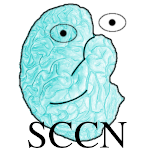Undergraduate Courses
PSYC3397: Cognitive and Neural Bases of Person Knowledge
Our daily lives are shaped by our interactions with other people. How do we know what we know about others? In this course, we will study how we perceive other people and acquire knowledge about them, and what brain mechanisms are involved. After taking this course, students will 1) have an understanding of what is currently known about how people perceive other people’s faces, bodies and actions, 2) have an understanding of what is currently known about how people infer other people’s emotions, preferences, and traits, 3) have a general understanding of the brain mechanisms involved in person perception and person knowledge. The course is organized into two parts. The first part discusses the perceptual mechanisms with which people recognize faces, bodies and actions. The second part discusses how this perceptual information is used to infer properties of other people that are not directly observable (i.e. how they feel, what they think).
PSYC4101: Research Practicum in Human and Artificial Intelligence
Artificial Intelligence is revolutionizing scientific research and society. In this course, you will learn how deep neural networks work, how to use them, and how they can help us to study the human mind and brain. After taking this course, you will 1) understand the theoretical foundations of deep neural networks, 2) be able to implement, train and test deep neural networks using GPUs, 3) have practical experience with the use of deep networks in Psychology and Neuroscience. The course is organized into two parts. The first part introduces students to deep learning through lectures, tutorials, and hands-on exercises. The second part encourages students to work in groups, using the techniques they have learned and their own ideas to develop a research project applying deep learning to the study of the mind/brain.
Graduate Courses
PSYC5595: Mathematics and Computation for Psychology and Neuroscience
Doing research in Psychology and Neuroscience and being competitive on the job market increasingly calls for mathematical and computational skills. This course introduces mathematical foundations including linear algebra, multivariable calculus, and probability theory, as well as applications such as linear models, dimensionality reduction, clustering, Bayesian models, and artificial neural networks. Along with the theory, the course will cover the implementation of the methods in Python. Throughout the semester, students will be encouraged to think about how to apply the contents of the course to their own research. After taking this course, you will 1) be familiar with topics in Linear Algebra, Calculus, and Probability Theory, 2) be able to implement computational methods using Python, 3) be able to use these methods to study research questions in Psychology and Neuroscience. The course consists of two portions. The first portion (12 lectures) covers foundations of mathematics and computation. In the remaining portion, we will discuss how to apply computational methods to the students’ own research projects. The first 12 lectures are organized into three parts. First, we will have a brief (20 minutes) discussion of a research paper that uses computational methods related to the lecture’s topics. Second, we will cover the relevant mathematical theory (1 to 1.5 hours). Finally, we will complete a Python tutorial related to the lecture’s topics.
